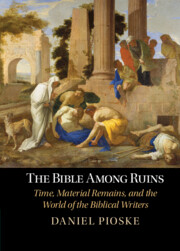The absolute chronology of Early Bronze Age in the Levant has been the object of a major revision (Regev et al. 2012a), which implied an increase of at least two centuries in respect of traditional chronology. Such a shift back was based upon two sites (Tel Yarmouth, Megiddo) which were the backbone of the “reform,” but actually do not offer complete sequences for the whole EBA. This was the weakest stone of the revision, together with a partial understanding of stratigraphy/contexts from where samples were taken. Tell es-Sultan/Jericho in Palestine was included in this study, as this prominent archaeological site provided well stratified 14C dates for EBA. Its stratigraphy, established by Kathleen M. Kenyon in the 1950s, was reappraised by the Sapienza University of Rome–Palestinian MOTA-DACH joint Expedition (1997–2018). Published 14C dates were reanalyzed along with new samples from carefully stratified and published archaeological contexts, measured by the CEDAD Laboratory (University of Salento, Lecce, Italy). They provided absolute dates connected with stratigraphy useful to double-check the proposed High Chronology. EBA stratigraphic periodization at Jericho suggests a more cautious approach and keeps a multi-based chronology more consistent with a comprehensive historical reconstruction of the Early Bronze Age in Syria-Palestine and Egypt.
